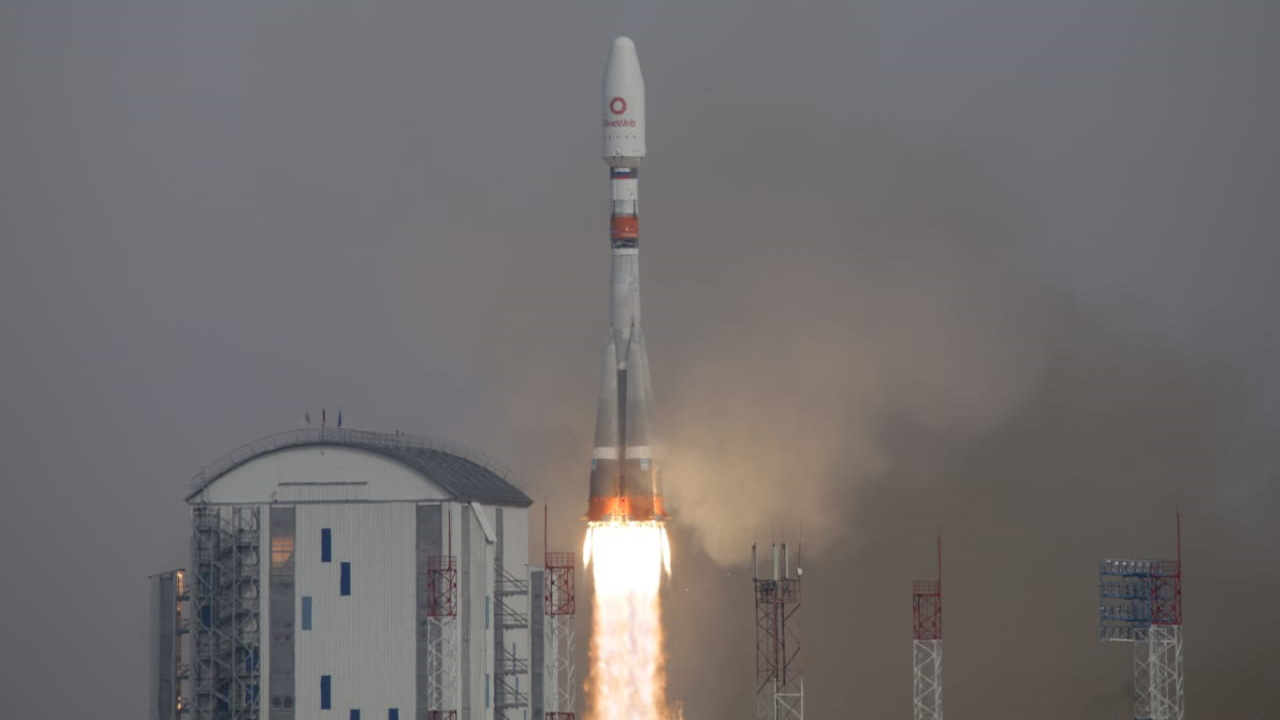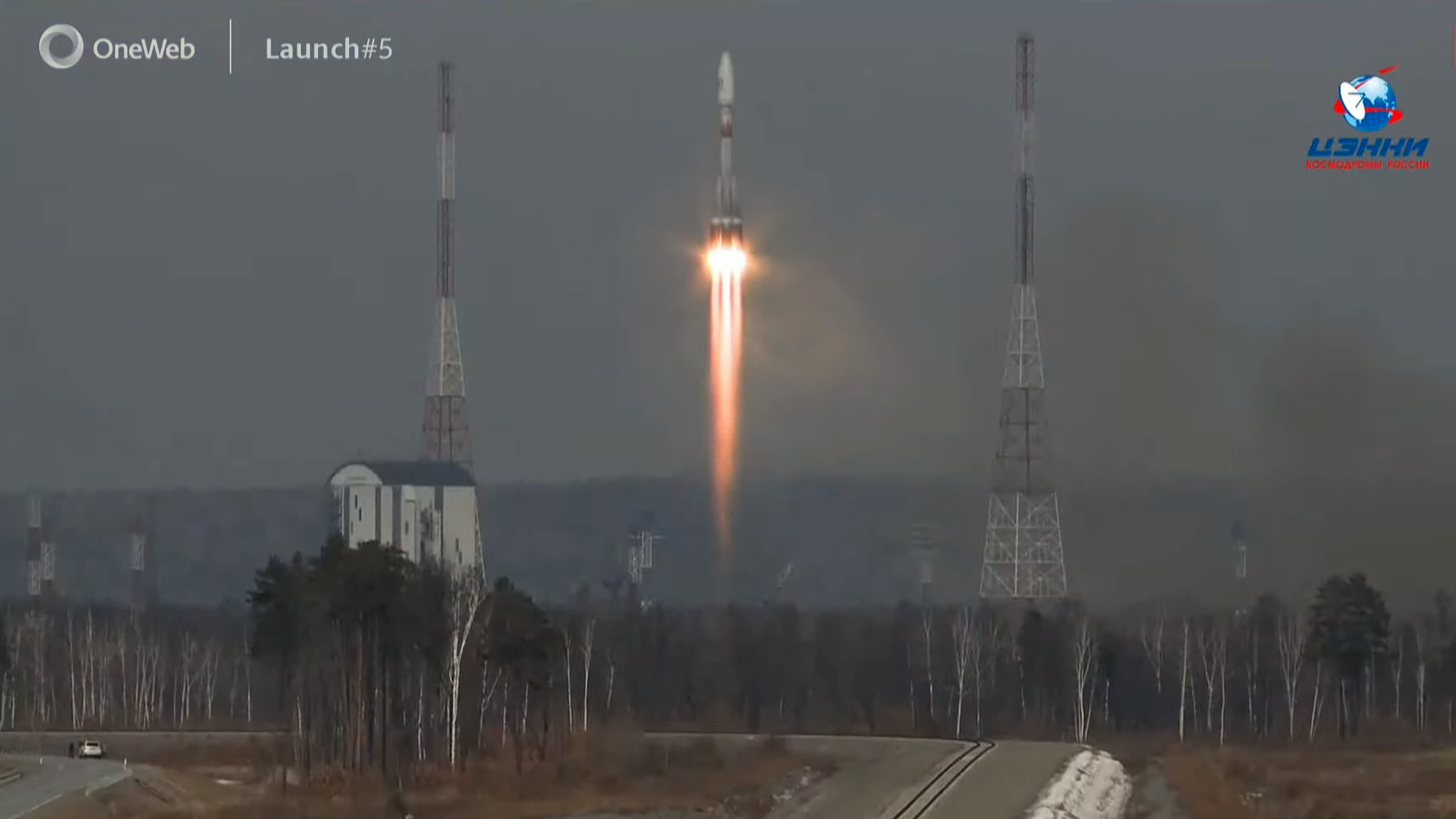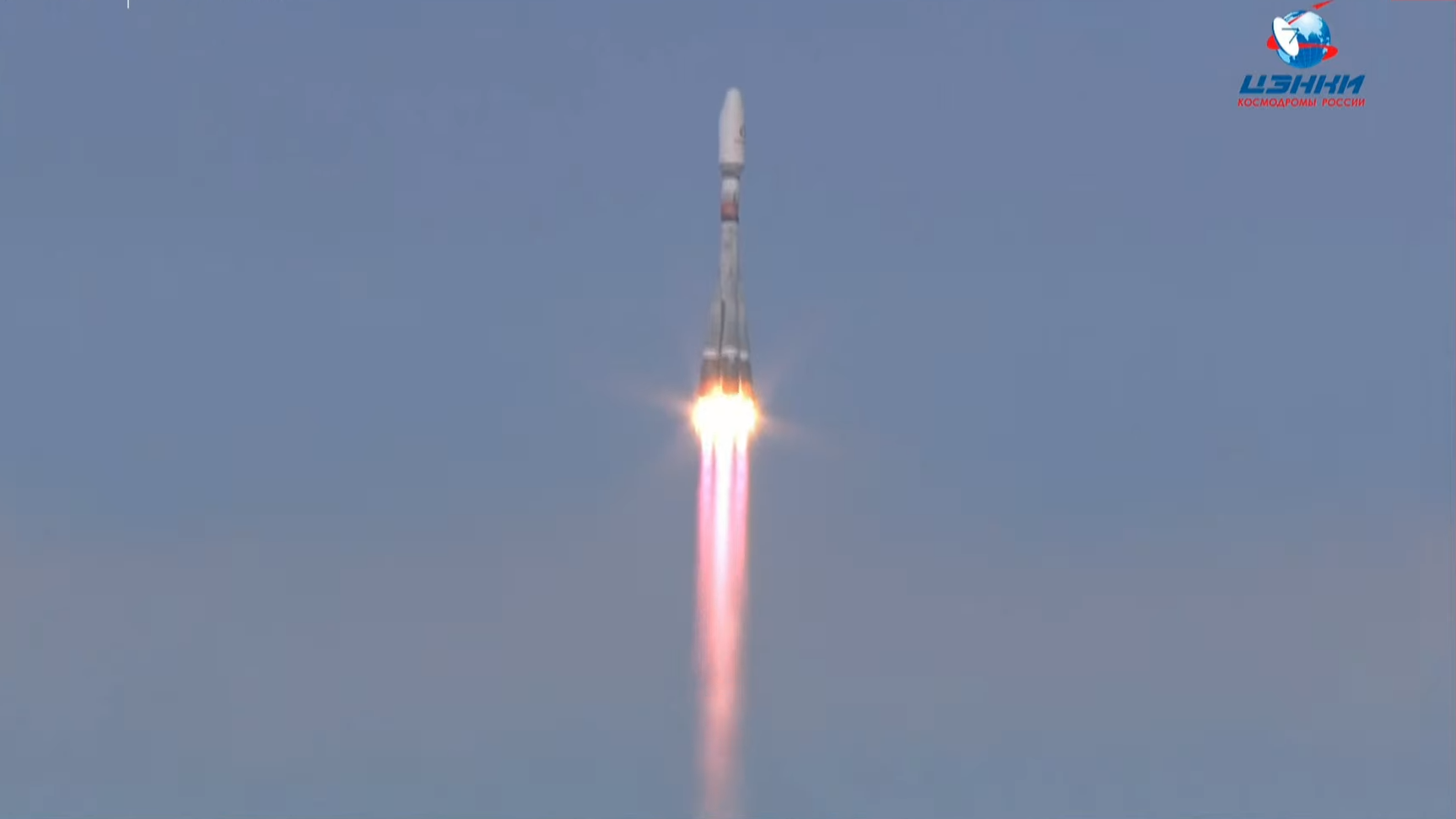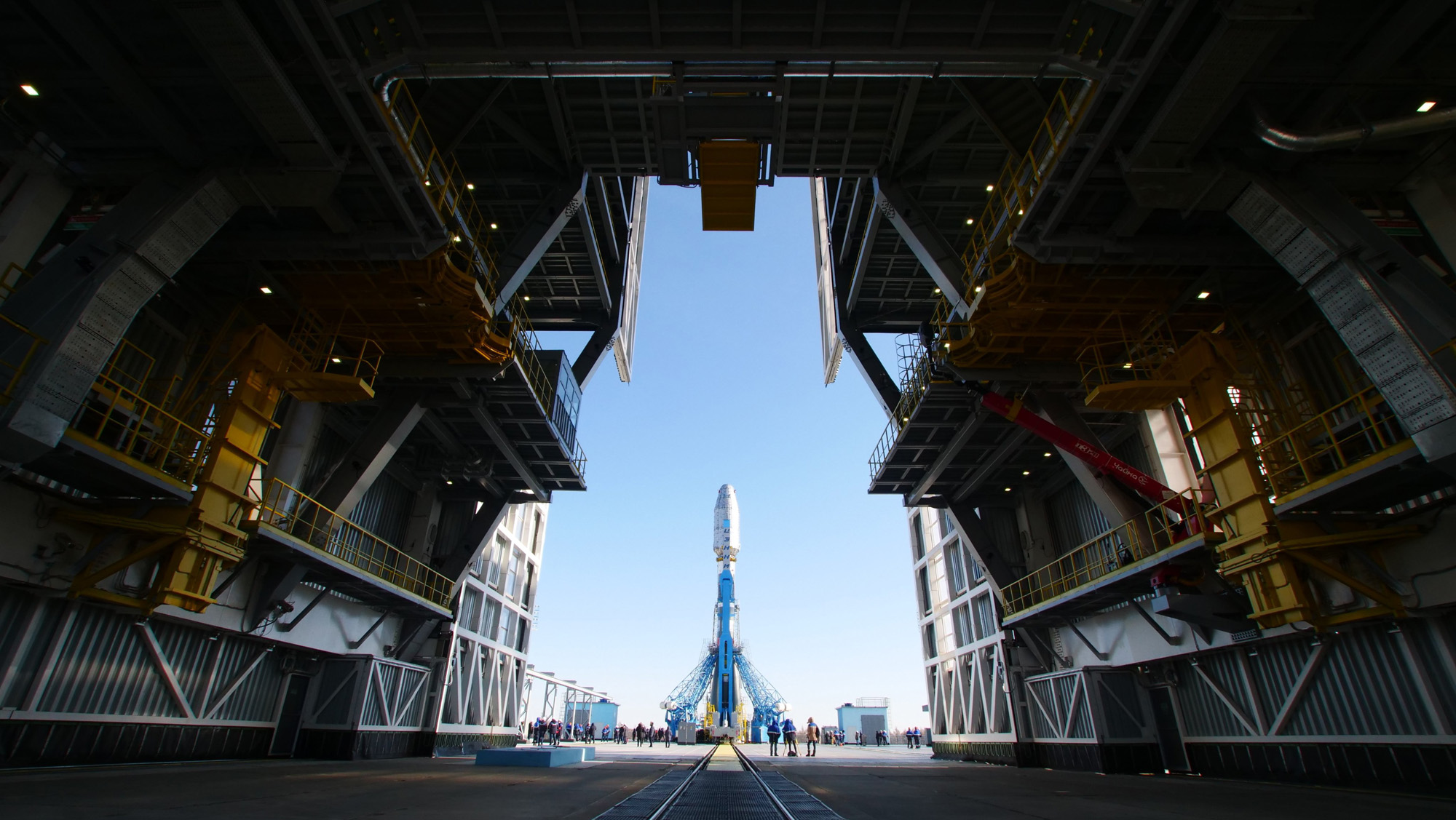Soyuz rocket launches 36 OneWeb satellites into orbit for modified satellite internet constellation






A Soyuz rocket successfully sent 36 OneWeb satellites into orbit Wednesday (March 24) as the London-based company continues its recovery from a tough 2020.
The European launch provider Arianespace launched the Soyuz rocket from Vostochny Cosmodrome in Russia's far east at 10:47 p.m. EDT (0247 GMT or 11:47 a.m. local time Thursday, March 25).
OneWeb satellites should have begun to deploy in groups of four beginning at 12:05 a.m. EDT (0405 GMT on Thursday, March 25), with the ninth and final group expected to deploy at 2:38 a.m. EDT (0638 GMT), if all goes according to plan. The satellites will circle Earth in a near-polar orbit at an altitude of roughly 280 miles (450 kilometers), which is slightly higher than the tilted equatorial orbit of the International Space Station.
This was the fifth launch for OneWeb overall. The satellite constellation, still under construction, aims to offer access to the Internet in remote areas using multiple Internet protocols, including 3G, LTE, the newest generation 5G (which enables the Internet of Things) and Wi-Fi, according to launch provider Arianespace.
In photos: OneWeb launches global satellite internet constellation
OneWeb "is focused on scaling the satellite constellation to launch commercial services starting at the end of 2021 to the UK, Alaska, Canada, northern Europe, Greenland, Iceland, and the Arctic seas," Arianespace wrote in a mission description.
OneWeb had originally planned to put 48,000 satellites into orbit, but after a tough 2020 it filed a request with the Federal Communications Commission (FCC) in January proposing 6,372 satellites.
Breaking space news, the latest updates on rocket launches, skywatching events and more!
The company, which filed for Chapter 11 bankruptcy a year ago shortly after the coronavirus pandemic erupted, told the FCC that the revision "demonstrates the commitment and vision" of its new owners, which are the British government and Indian telecom company Bharti Global. The goal is to deploy "a cost-effective, responsible, and groundbreaking satellite network to deliver global broadband," according to the filing, which was quoted by Space News in January.
A release by OneWeb announcing the new launch said the company is now "hiring at a fast pace" — with 200 new employees coming in since last fall — as the company builds a global ground station network. It pointed to a $73 million contract with Intellian for user terminals, and another contract (for an undisclosed amount) with Satixfy for Wi-Fi terminals on aircraft.
"OneWeb Satellites, a joint venture with Airbus, is manufacturing the satellites and has returned to full production," OneWeb added, saying it has secured global priority spectrum rights with the International Telecommunications Union to support the growing constellation.
Follow Elizabeth Howell on Twitter @howellspace. Follow us on Twitter @Spacedotcom and on Facebook.

Elizabeth Howell (she/her), Ph.D., was a staff writer in the spaceflight channel between 2022 and 2024 specializing in Canadian space news. She was contributing writer for Space.com for 10 years from 2012 to 2024. Elizabeth's reporting includes multiple exclusives with the White House, leading world coverage about a lost-and-found space tomato on the International Space Station, witnessing five human spaceflight launches on two continents, flying parabolic, working inside a spacesuit, and participating in a simulated Mars mission. Her latest book, "Why Am I Taller?" (ECW Press, 2022) is co-written with astronaut Dave Williams.
